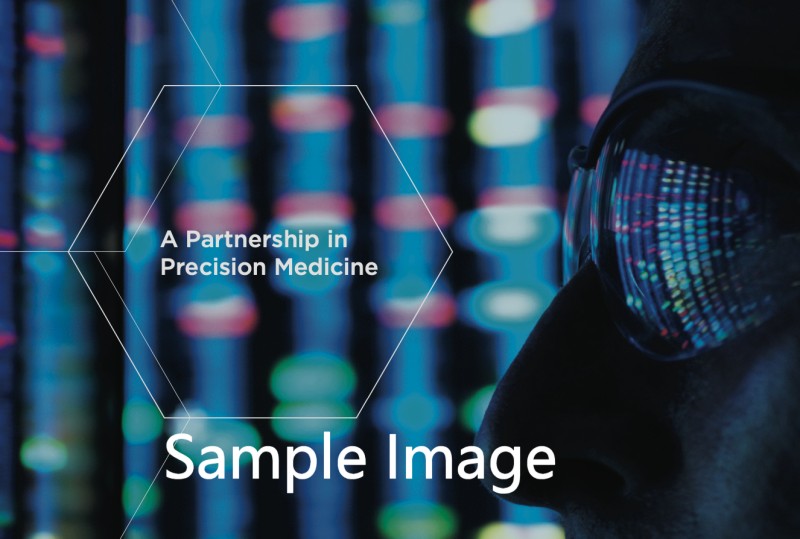The mission of Precision Medicine Initiative for Commercialization (PreMIC) is to provide financial support for commercial translation projects at the University of Pittsburgh and UPMC. PreMIC engages novel precision medicine-based approaches that address unmet medical needs, providing support to move projects towards well-defined commercialization endpoints, such as technology licensing, industry partnerships, or formation of a new company.
The 2nd PreMIC cycle began in January 2021 and received 21 proposals. Five proposals were shortlisted to compete in a virtual pitch competition on April 19, 2021. An expert panel evaluated pitches on areas that included validation for clinical need and scientific merit, market differentiation, and technology readiness. Finally, three projects were awarded funding and will receive translational development support from sciVelo. The 2nd PreMIC cycle awardees are:
Aneurysm Prognosis Classifier (APC) comprised of David A. Vorp, PhD (Dept. of Bioengineering), Timothy K. Chung, PhD (Dept. of Bioengineering), and Nathan L. Liang, MD, MS (Dept. of Vascular Surgery) for their personalized digital solution to identify risk of aneurysm rupture. Abdominal aortic aneurysm (AAA) has a 90% annual mortality rate. The current standard of care treatment for AAA entails “watchful waiting” to determine whether to perform either surgical intervention or costly patient surveillance. APC is a prognostic machine-learning tool that combines advanced imaging analysis of CT images with clinical and biomechanical indices to guide the clinical management of a patient with an aneurysm. The APC tool provides clinical and economic advantages over the standard of care for AAA. The APC team will use $100,000 for internal validation of the prototype model on retrospective data and to determine the appropriate FDA regulatory path.
PurinAid, comprised of Stevan P. Tofovic, MD, PhD, FAH, FASN (Dept. of Pharmacology & Chemical Biology), Edwin K. Jackson, PhD (Dept. of Pharmacology & Chemical Biology), and Enrico Novelli, MD, MS (Dept. of Medicine) for the development of a multipronged solution for Sickle Cell Disease (SCD). SCD is the most common inherited blood disorder, characterized by poor life expectancy with life-long cycles of painful crises and a significant healthcare burden (460K USD/patient). Current treatments only target one out of several underlying disease mechanisms at a time, benefitting only ~50% of SCD patients. PurinAid is a precision-medicine solution that combines a novel drug compound with a companion diagnostic. PurinAid inhibits a key enzyme involved in three different disease mechanisms. The companion diagnostic predicts a patient’s enzyme levels and allows tailoring of the PurinAid posology. Together, PurinAid and its companion diagnostic provide a personalized treatment for SCD patients. The technology is licensed from Pitt to Pittsburgh-based Deleon Biosciences. The PurinAid team will use $100,000 to gather toxicological information of the compound, and to assemble a diagnostic kit prior to applying for FDA investigational new drug (IND) designation.
Metabolic Improvement & Reprogramming for Aging Cardiovascular Longevity in Diabetes (MIRACLE) comprised of Francisco J. Schopfer, PhD, MBA (Dept. of Pharmacology & Chemical Biology), Adam C. Straub, PhD (Dept. of Pharmacology & Chemical Biology), Michael Jurczak, PhD (Dept of Medicine), Fei Chang, PhD (Dept. of Pharmacology & Chemical Biology), and Pascal Rowart, PhD (Dept. of Pharmacology & Chemical Biology) for advancing their solution to increase cardiovascular longevity in metabolic disorders. Patients with metabolic syndrome present with a variety of metabolic defects, including insulin resistance and high levels of cholesterol and triglycerides, putting them at higher risk for cardiovascular disease. MIRACLE utilizes Furan Fatty Acids (FuFA) for holistic metabolic reprogramming of the liver to promote insulin sensitization and reduce high triglyceride and cholesterol levels. The MIRACLE team will use $100,000 for the preclinical development of FuFa, which includes scale-up synthesis followed by pharmacokinetic and dosing studies in animal models. The outcomes of these studies will support filing of a patent application and an NIH SBIR/STTR Phase 1 application.
About Precision Medicine Initiative for Commercialization (PreMIC)
PreMIC is a collaborative initiative between the University of Pittsburgh’s Institute for Precision Medicine (IPM) and sciVelo. Funding for this initiative is generously provided by the Richard King Mellon Foundation. The end-goal is to drive transformative precision medicine research at the University of Pittsburgh towards clinical and commercial applications, such as company formation, licensing, or industry partnership.
The PreMIC judges panel included local leaders in clinical and commercial translation who kindly volunteered their time.
- Michael Lotze, MD (Director of Strategic Partnerships, University of Pittsburgh Cancer Institute and Director of Catalyst Program, Clinical and Translational Science Institute (CTSI), University of Pittsburgh), David Whitcomb, MD, PhD (Professor of Medicine, Director of Precision Medicine Services, UPMC), and Mylynda Massart, MD, PhD (Associate Director of Clinical Services, Institute for Precision Medicine and Core Director of Engaging Special Populations, CTSI, University of Pittsburgh) provided insights on the clinical needs and impact of the proposed solutions.
- Hank Safferstein, PhD, JD, MBA (Executive in residence, UPMC-Enterprises and CEO, Generian), Zariel Johnson, PhD (Program Manager, UPMC Enterprises), and Tullia Bruno, PhD (Assistant Director of Immunology, Scientific Director, UPMC Hillman Cancer Center Flow Facility) assessed the market needs of the projects.
- Phil Empey, PharmD, PhD (Associate Director of Pharmacogenomics, Institute for Precision Medicine, University of Pittsburgh), Sreekar Gadde, JD, MBA (Executive Director for BlueTree Allied Angels), and Cecilia Yates, PhD (Associate Professor of Health Promotion and Development, University of Pittsburgh) assessed the market differentiation and commercial potential of the pitched projects.
- Adrian Lee, PhD (Director, Institute for Precision Medicine, University of Pittsburgh and Senior Advisor, UPMC-Enterprises), Andrew Brown, PhD (Assistant Director, Commercial Translation Programs, sciVelo, University of Pittsburgh), Kathrin Gassei, PhD (Executive Director, sciVelo, University of Pittsburgh), and Jennifer Xavier, PhD (Associate Director for Research, Institute for Precision Medicine, University of Pittsburgh) evaluated the scientific and technology readiness of the pitched projects for commercial translation.


